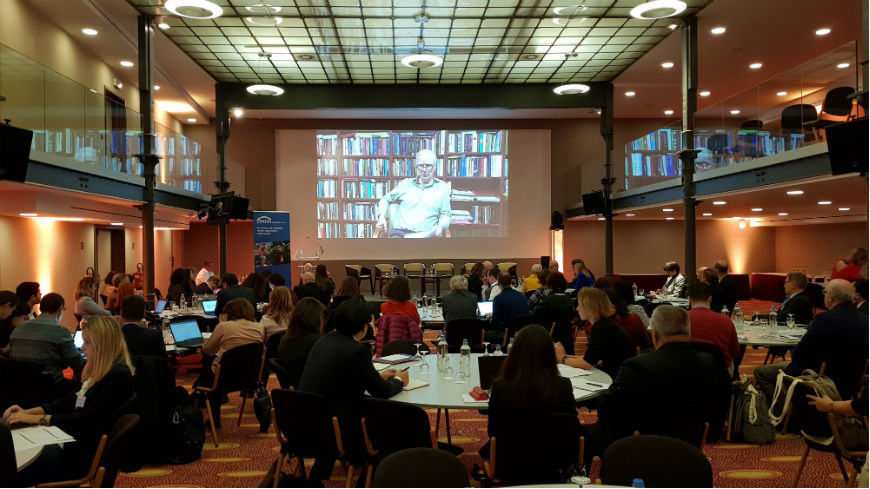The Annual Conference of the European Network of National Human Rights Institutions (ENNHRI) was held in Brussels on 14 November 2019. The conference brought together European National Human Rights Institutions (NHRIs) with regional and international organisations and civil society to showcase the role and relevance of NHRIs in the realisation of social and economic rights in Europe and encourage a human rights-based approach to economic and social policies and reforms at the national and European level.
The programme included high-level panels and interactive small group discussions, with a focus on poverty, the right to housing, labour rights, justiciability and promotion of economic and social rights. François Vandamme, Vice-President of the European Committee of Social Rights, highlighted the work of the Committee as a source of inspiration for national and international stakeholders, including National Human Rights Institutions. Branko Lubarda, Judge at the European Court of Human Rights presented the Court’s case-law related to economic and social rights, underlining that human rights are a way of talking about or framing issues in society such as poverty, of social injustice, health etc.
An interactive, online page with good practices illustrating how NHRIs work on economic and social rights in Europe was launched prior to the conference as a background information and will be updated given the outcomes of the Conference. A Guide for NHRIs on how to contribute to a human rights-based approach to poverty reduction and measurement was also presented at the conference.





 Azerbaijan
Azerbaijan Bosnia and Herzegovina
Bosnia and Herzegovina
 Republic of Moldova
Republic of Moldova Montenegro
Montenegro Serbia
Serbia
 T
T Ukraine
Ukraine
